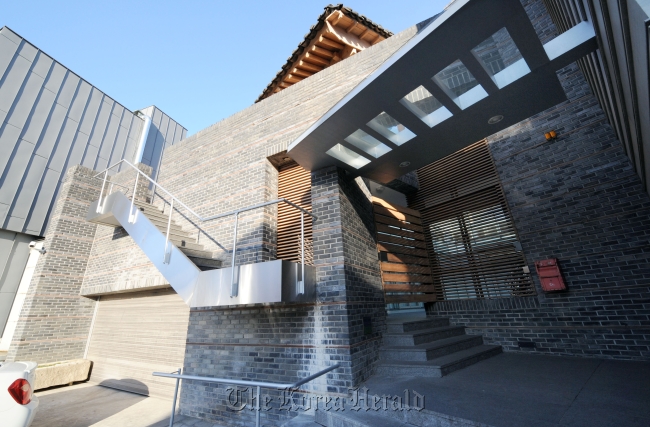The Seoul Central District Prosecutors’ Office said Tuesday it has launched an investigation into Gallery Seomi, one of the most prominent art galleries in Korea, and its director Hong Song-won on suspicion of evading billions of won in taxes.
Much attention is being paid to the case as it could cause a ripple effect up to some of the chaebol families who have long been in close relations with the gallery and Hong.
 |
Gallery Seomi in Hannam-dong, Seoul. (The Korea Herald) |
The gallery is suspected of avoiding taxes by omitting some of its profits from its account books or not issuing tax invoices from 2007 to 2010.
It also allegedly dodged value-added taxes by leaving out the prices of imported high-end furniture from the account books or undervaluing them.
“(The prosecution) will call in officials in charge of the tax office to verify the facts about the suspected tax evasion,” said an official from the prosecutors’ office, adding that “there were no names from chaebol families included in the complaint.”
The Seoul Regional Tax Office from last September started its tax investigation into the gallery, specifically into customs declarations, bank transactions and commission fees, and filed a charge against Hong and her gallery with the prosecution this year.
With her gallery Seomi having long been accused of being a hotbed of slush funds from conglomerates, Hong has been suspected of playing a mediating role in illegal money transactions.
In 2008, she was involved in a “Samsung slush fund” scandal. She allegedly sold Roy Lichetenstein’s “Happy Tears” to Hong Rah-hee, wife of Samsung Electronics chairman Lee Kun-hee, and received money from a suspected Samsung slush fund.
The director was also mired in an Orion Group slush fund case, and in illegal financial business activities among savings banks including Solomon and Mirae.
She was sentenced to a jail term in 2011 for receiving 4 billion won ($3.7 million) in slush funds from Orion and buying artwork for them, but was soon released in the same year.
A graduate of Ewha Womans University, Hong started in the art trading business in 1988 and has been doing business mainly with big names.
The Galleries Association of Korea, an association for promoting the art business, indefinitely suspended the trading rights of Gallery Seomi last year.
Hong was once expelled from the association in the late 1990s after introducing a fake Picasso piece to the public as genuine.
By Kim Young-won (
wone0102@heraldcorp.com)








